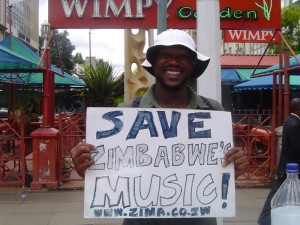Marriage in Zimbabwe
Thursday, March 18th, 2010 by Zanele ManhengaMarriages in Zimbabwe are not only about white dresses, twenty bridesmaids; colorfully decorated venues and long excruciating church services believe me. But before I get over myself let me start from the beginning.
There are only three recognized unions in our country. The first one is the 5:11 marriage, which is the civil marriage. The second one is the 5:07, which is the customary law marriage. This marriage is also called a potentially polygamous marriage. In this marriage the husband and not the wife is allowed to have more than one wife and that’s not all. He can have a civil marriage with his second wife. It means he can go to court or have a church wedding with his second wife and not his first wife. If he dies and he did not marry another wife under the customary law the wife is not allowed to inherit his land. What is given to her according to the law are her pots and blankets. The third is actually considered null and void. For example if you as a woman are impregnated and you go and live with him and he dies, the baby is the one who is recognized by the law. You as the wife are recognized as a girlfriend and not a wife even if you stayed together for five years. So the third one is recognized in the event that there is a child. If you just stayed with him without the 5:11 or the 5:07 you only get your pots and spoons in the event he dies.
As long as there is a duel system in Zimbabwe these marriages will always have loopholes. Even if a couple has a 5:11 marriage it has its own downfalls though it’s considered the one better than the 5:07. If it’s not done first it can be down graded to a 5:07 if the husband co-habits with a small house for a number of years and he happens to pass away. During the estate sharing, the two wives get the property of where they were living, and then the rest is shared equally among his children from both wives. Because the couple registered the 5:07 first when he went to pay rora.
This is the advice from lawyers. You must register the 5:11 first and stand a chance of not sharing your property even if he was cohabiting with another wife whom he married customary. The marriage will be taken as illegal because he had a one-wife one-man marriage. But this means you have to go to court and have the marriage registered before he goes to pay rora. With the judiciary system running parallel to the customary law, culture does not allow you to have the civil wedding before lobola.
My suggestion is to get all these things out of the way. We need to seriously make sure we get to participate in the rewriting of the constitution as women. I hope this happens sooner than later because with all this I know getting married now is kind of scary.



 A week ago
A week ago 





